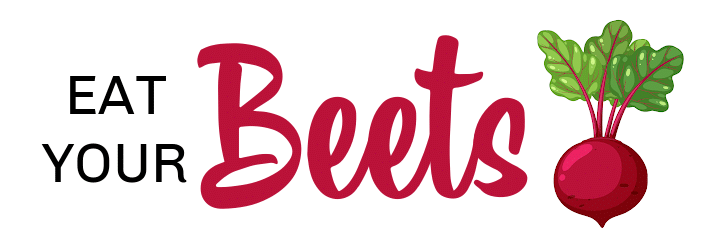30 Items Food Banks Need: Food Bank Items List
Do you have shelves filled with food reaching the end of its shelf life just sitting in your pantry? Are you looking for ways to give back to your local community and make a positive impact but don’t know where to begin? Donating items to food banks is one simple way of giving back during these challenging times.
Every year, thousands of people turn to their local food banks for sustenance; however, many donators are unaware of the most needed items. To help answer this question, we’ve compiled an essential 30 food bank items list so you can confidently donate.

Contents
What Is a Food Bank?
Food bank is a charitable organization that collects, stores, and distributes food to needy people. They act as a lifeline for people struggling to reduce hunger due to financial difficulties, job loss, or other challenging circumstances.
The donated food is collected from individuals, organizations, and businesses and sorted and distributed to partner agencies such as shelters, soup kitchens, and food pantries. These partner agencies then distribute the food directly to needy individuals and families.

Food Bank Items List
Here is the 30 food bank items list, that a local food bank often needs:
Canned Fruits
Canned fruits are a fantastic food bank item for having a long shelf life, ensuring that they can be stored and distributed over time without the worry of spoilage.
Canned fruit retains most of its nutritional value, packed with essential minerals and vitamins that help support overall wellness.
Canned Vegetables
Low-sodium canned vegetables are a valuable addition to food banks, providing essential nutrients without the unhealthy salt content. These canned vegetables have a long shelf life, making it easy for a local food bank to store them.
Canned Beans
Canned beans, including black beans and chickpeas, are an ideal choice for a food bank, as they provide a filling and nutritious option for a hungry tummy. Non-perishable food items can last longer, reducing the risk of expired food.
Canned Soup
Low-sodium canned soup is an excellent addition to a local food bank, providing a quick and easy meal for those in need. When donating, it’s important to consider packaging concerns – avoid glass containers that can break and opt for cans or sturdy plastic instead.
Canned Meat
Canned meats, like canned chicken, make great food donations for food banks, as they provide a quick and easy meal packed with protein. When donating canned chicken, it’s important to consider packaging concerns – avoid glass containers that can break.
Peanut Butter
Peanut butter and other nut butter make fantastic food donations for a food bank, as they offer a quick and easy meal option packed with protein and healthy fats. These versatile food items can be used in various dishes or spread on bread for a satisfying snack.
By donating peanut butter and other nut butter, you’re helping to provide a nutritious and filling choice for those in need.
Whole Grain Pasta
Whole grain pasta makes a wonderful food donation, offering a healthier alternative to white pasta. This nutritious food item pairs well with pasta sauce.
By donating whole-grain pasta, you’re helping to provide a more wholesome option for those in need.
More Ideas for Your Food Bank Items List
Brown Rice
Brown rice is an ideal food item for a local food bank, as it’s both nutritious and shelf-stable. With no special equipment needed for storage, it provides a wholesome and versatile option for those who rely on food assistance programs to meet their dietary needs.
Oatmeal
Oatmeal is a fantastic addition to food banks, as it’s a nutritious and versatile breakfast option. Rich in fiber and easy to prepare, oatmeal provides a warm and satisfying meal for those who rely on community food hubs.
Granola Bars
Granola bars are an excellent choice for food banks, offering a convenient and nutritious snack option. Packed with fiber and energy, these grab-and-go bars provide a quick boost for those in need, making them a valuable addition to any food bank’s inventory.
Low-Sugar Cereal
Low-sugar cereal is one of the fantastically preserved food items to donate to local food assistance programs. Providing a healthier breakfast choice ensures that families in need have access to a nutritious and easy-to-prepare meal to start their day right.
Shelf-Stable and Powdered Milk
A food pantry should stock up on shelf-stable milk as it is a valuable non-perishable item that ensures access to dairy nutrition for those in need. Alongside other essentials like pinto beans, shelf-stable milk allows families to create a variety of wholesome meals. By including such non-perishable items, a food pantry can cater to the diverse dietary requirements of its community.
Cooking Oil
Food banks should keep cooking oils like olive oil and canola oil as they are essential ingredients for preparing a variety of healthy meals. These versatile oils are often found in cellophane packaging. The food bank promotes balanced diets and satisfying home-cooked meals for needy people by providing cooking oils.
Flour
Food distribution centers should keep flour, a versatile and essential ingredient for many home-cooked meals. This helps support the nutritional needs of those in need and fosters community and comfort through the joy of preparing and sharing homemade meals.
Sugar
Food banks stocking sugar enables families to enjoy sweet treats and maintain a sense of normalcy. As a versatile ingredient, sugar helps create comforting homemade recipes that can uplift spirits during tough times, making it an essential item for a local food bank to provide.
Salt
Stocking iodized salt in local food bank supports families’ nutritional needs and long-term health. This essential item improves meal flavors and provides vital iodine for maintaining a healthy thyroid.
Spices
Stocking spices in food depots enhances meal flavors and variety, promoting home cooking and comfort for needy families. By providing these essential seasonings, food bank improves the culinary experience for the communities.
Coffee or Tea
Food banks should keep tea and coffee as they offer warmth and comfort to those in need. These beverages not only provide a source of energy but also create moments of relaxation and connection for families. By offering tea and coffee, the food bank contributes to the well-being and emotional support of the communities.
Juice
Food banks should stock 100% fruit juice as it is rich in vitamins and supports overall health. By offering this wholesome drink, food distribution centers cater to diverse dietary preferences and contribute positively to the well-being of those they serve.
Crackers
Food banks should keep crackers as they offer a versatile and convenient snack option for those facing food insecurity. Crackers can be paired with various spreads or toppings, providing a satisfying and quick energy source.
Popcorn Kernels
Popcorn kernels are a valuable addition to food distribution centers, as they offer an affordable and nutritious snack option for people experiencing limited access to food. By including popcorn kernels in their inventory, these centers ensure individuals can access simple, enjoyable, healthy snacking choices during challenging periods.
Baby Food and Formula
Food banks should maintain supplies of baby food to address the unique nutritional requirements of infants and young children. By providing these essential items, food banks ensure that even the youngest members of families facing food scarcity receive proper nourishment and care during critical times.
Dried Herbs
Food banks should stock dried herbs as they enhance the flavor of meals and promote healthy home cooking for those facing food challenges. By offering these versatile ingredients, food banks empower individuals to create delicious and satisfying dishes, fostering a sense of comfort and well-being through the joy of shared meals.
Applesauce
Applesauce plays a delightful role in food depots, offering a nutritious and tasty option for those in need. Packaged in convenient pop-top cans, applesauce makes an ideal food donation, combining the benefits of fresh produce with ease of access. This versatile treat is a welcome addition to any pantry, providing ample nourishment and enjoyment.
Garlic Powder
Food banks should keep garlic powder as it adds a rich, savory flavor to meals, elevating the taste of various dishes for those facing food challenges. This versatile seasoning encourages home cooking and contributes to a sense of comfort and satisfaction through enjoyable meals, making garlic powder an essential item for food depots to provide.
What to Donate to Your Food Bank
Whole Grain Cereal
Food banks should stock whole grain cereal as it offers convenient breakfast options for individuals facing food challenges. Rich in fiber, vitamins, and minerals, whole grain cereal supports overall health. It provides a quick, easy-to-prepare meal, making it essential to include in food banks’ offerings.
Black Eyed Peas
Food banks should keep black-eyed peas in stock as they are a nutritious source of plant-based protein for those facing food challenges. These legumes provide essential nutrients such as vitamins, fiber, and minerals, contributing to a balanced diet.
By offering black-eyed peas, the food bank helps promote health and well-being through diverse and wholesome meal options.
Baked Goods
Utilizing food distribution centers for storing baked goods offers many advantages in combating food scarcity and waste. By maintaining an inventory of bakery products, these centers efficiently allocate nourishing food to underprivileged communities.
Canned Fish
Stockpiling canned fish, such as canned tuna and salmon, at food distribution centers offers myriad benefits in addressing nutritional disparities and promoting sustainability. These non-perishable protein sources provide essential nutrients to underprivileged communities.
Canned Protein
Storing canned proteins at food distribution centers plays a pivotal role in alleviating hunger and fostering nutritional equity. The extended longevity of canned proteins significantly reduces spoilage, contributing to a more sustainable food system.
Moreover, distributing these nutrient-dense options bolsters community resilience and supports overall well-being, making them indispensable assets in combating food insecurity.
It’s Time Donate From the Necessary Food Bank Items List
We must come together and do our part to support food banks by donating essential items such as dried herbs, applesauce, garlic powder, whole grain cereal, black-eyed peas, baked goods, canned fish, and canned protein.
Together, we can ensure that food is no longer an obstacle in the lives of those facing food insecurity. Make a difference today and donate to your local food bank! Let’s share the joy of a healthy meal with everyone.
Don’t forget our Furry Friends Who may require a pet food bank from time to time too!






